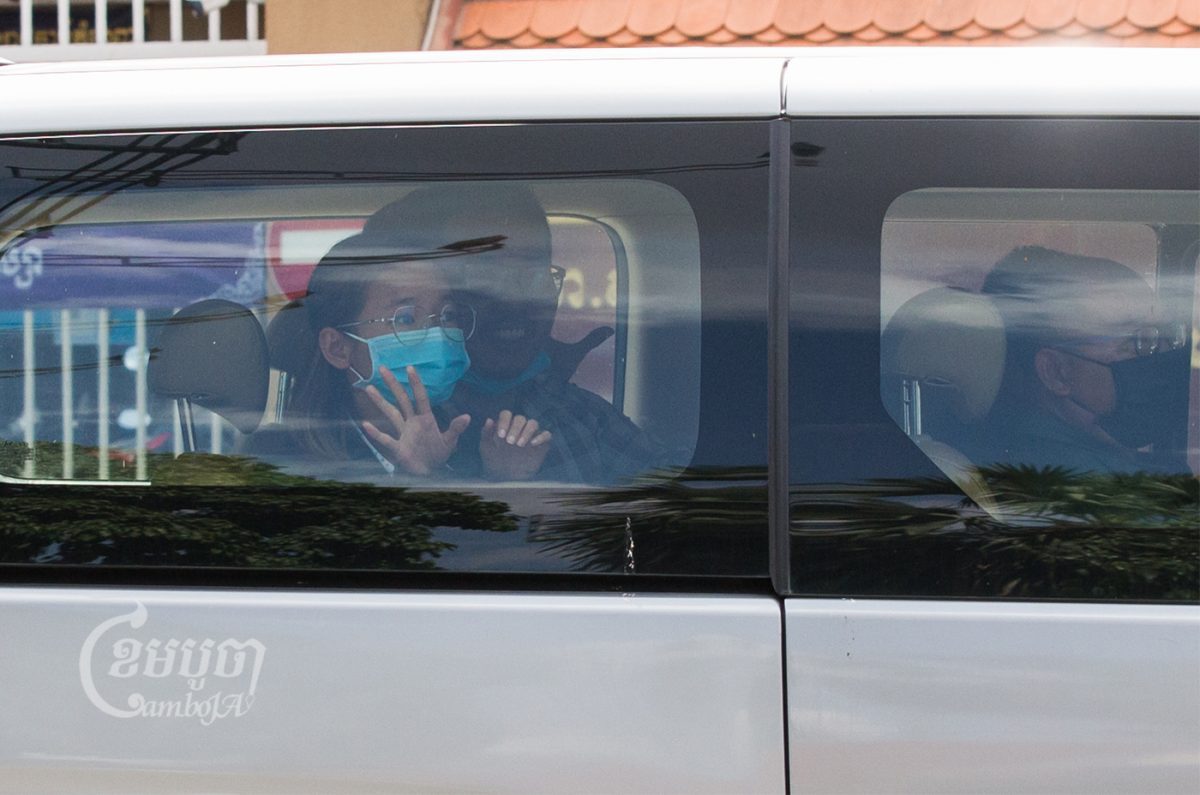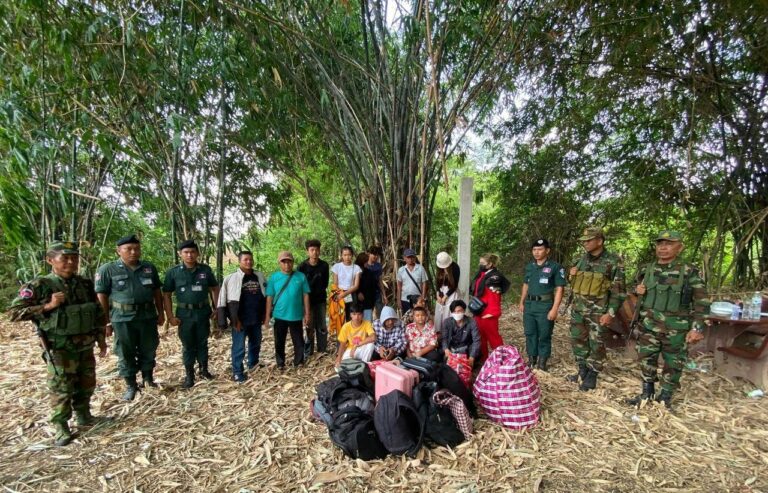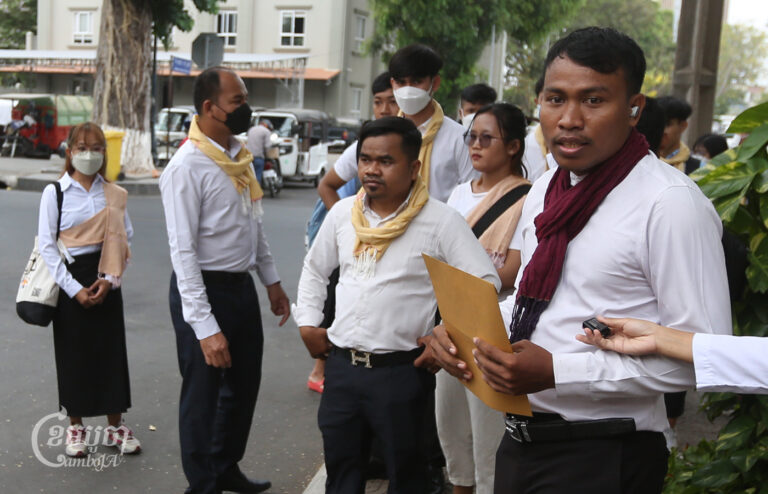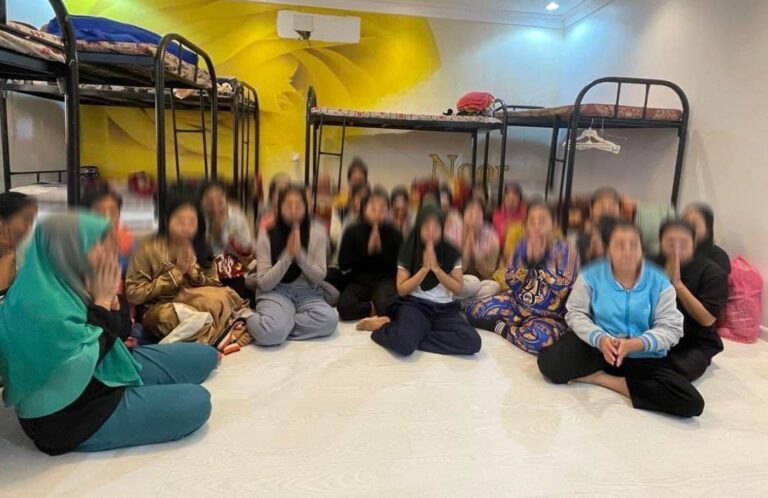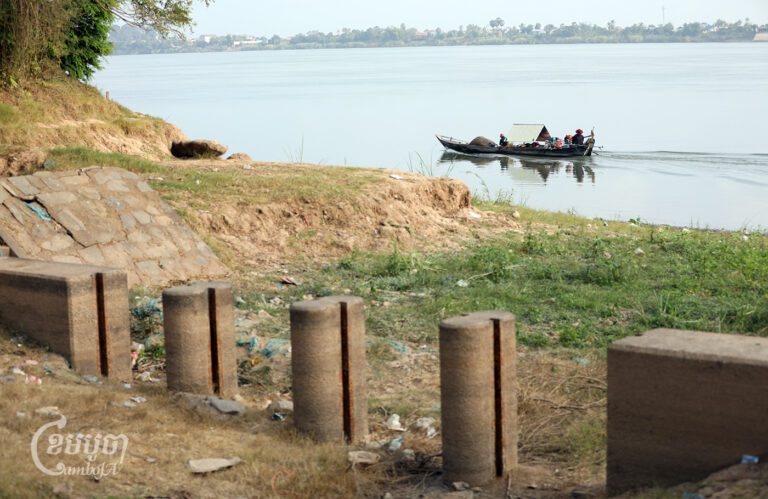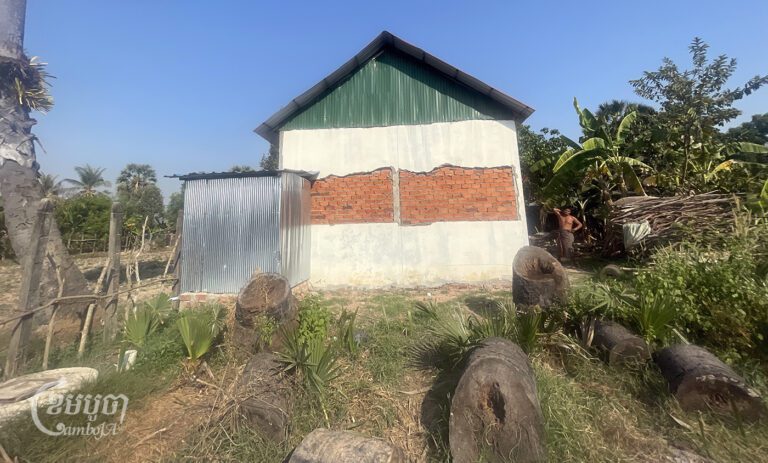On Thursday, the United Nations in Cambodia launched a project aimed at bolstering the country’s shrinking civic spaces, “Building back better through participation – enhancing and protecting civic space and people’s participation”, amid concerns expressed by local civil society and media groups.
Implemented jointly by the UN Human Rights and UNESCO, the project establishes targeted activities to halt threats to civil society, particularly the safety of activists in rural areas and in digital spaces. The Australian Government provided funding amounting to $717,000 to run a two-year project.
“You all know better than I, that individuals who stand up for the rights of others pay the price,” said Pauline Tamesis, the UN Resident Coordinator to Cambodia, in a released statement.
“We urge Cambodia to do more to protect the rights of activists to speak, to express themselves, to associate, and to assemble in protest freely. The exercise of these fundamental freedoms is even more important in a year where Cambodia is the ASEAN Chair and the region looks to this country as a role model,” she added.
Australia’s ambassador to Cambodia, Pablo Kang, also echoed his concerns about the shrinking of civic spaces in Cambodia.
“We urge it to ensure that civil society actors are able to fully exercise their fundamental freedoms of speech, assembly, and association. The active engagement of civil society is critical to protect human rights and to achieve equitable and sustainable development in Cambodia,” said Kang in the statement.
Pradeep Wagle, the Representative of the High Commissioner for Human Rights in Cambodia, said via email that this UN project will increase the capabilities of UN agencies to monitor the situation and to respond when human rights defenders are at risk, to help them build their capacity to conduct their work safely.
“Democratic principles and human rights are a cornerstone of an open and healthy society,” he said – adding that they are crucial for peace and equitable, sustainable development.
“It is very much in the interest of everyone, including the Government of Cambodia, to engage in open and honest dialogue and to welcome the work of human rights defenders,” Pradeep said.
He underlined that activists and journalists have faced serious challenges in Cambodia, with reports of intimidation or violence in recent years. He said that with this project, the UN will continue to support their crucial roles in promoting human rights and reporting on issues that matter to the public.
He also said that the UN will support the Cambodian government in a cooperative effort that encompasses a broad spectrum of issues, including the promotion of fundamental freedoms such as the right to freedom of expression.
“We intend to host a series of protection dialogues, where we hope to discuss burning issues and find solutions together,” he said.
Chak Sopheap, executive director of the Cambodian Center for Human Rights (CCHR), said via email that individuals who dare report on issues deemed “sensitive” in criticizing governmental policies and actions, or who work in the pursuit of causes that impede the ruling elite’s agenda, have been increasingly targeted in recent years.
“The Royal Government of Cambodia has tightened its grip on power,” she said.
She pointed out that judicial harassment, physical attacks, intimidation, and excessive monitoring were just some examples of the threats that journalists and human rights defenders continue to face today in Cambodia.
“They are wrongly perceived as threats, seen with suspicion by authorities and silenced,” Sopheap said.
Koet Saray, who was convicted last year with incitement in connection with peaceful demonstrations against the imprisonment of unionist Rong Chhun, echoed the increasing restriction of freedom of expression in Cambodia, including the right to assemble.
“We have already seen political freedom decline since the dissolution of the main opposition party [CNRP],” he said.
“For me, what the United Nations raised reflects the truth of the Cambodia situation [restriction on rights and freedoms], so Cambodia cannot make excuses,” Saray said.
“I have not seen that the government is willing to restore democracy and respect human rights, because Cambodia is relying on China,” he said.
He said that as the government continues to ignore human rights and backtracks on democracy, Cambodia will face more international pressure – which would impact its economy, related to Everything-but-arms’ tariff-free agreement and GSP of the United States.
Saray, who is now president of the Khmer Student Intelligent League Association, was released in November last year, but remained under court supervision for two years over incitement charges.
Justice Ministry spokesman Chin Malin welcomed the project but said it has not yet been comprehensive enough in responding to challenging issues.
“Some challenges are that people do not understand their rights and freedoms according to the law,” he said, and they end up violating the law and abusing other people’s rights. He added that some civil society groups have not fully implemented their obligation in line with the law.
“This project should be expanded to educate people to understand the law and to use their rights legally, including to strengthen the role of civil society groups legally,” Malin said.
Ith Sothoeuth, the media director at the Cambodian Center of Independent Media (CCIM), said that the government continues to restrict rights and freedoms, including silencing independent media.
He pointed out that the journalists who are employed by CCIM’s new outlet, VOD, was threatened with the arrest of a foreign journalist while they were reporting on a labor strike on NagaWorld casino activities in Phnom Penh.
During the strike on February 5, a police officer demanded to see the journalist’s original documents and threatened them with arrest if they continued taking photos and videos and did not leave the area.
“I am still concerned it will continue, especially as our country is preparing for the upcoming election,” Sothoeuth said.
He also said that the restrictions on rights and freedoms have been carried out since 2017, after the dissolution of the former opposition CNRP party, the crackdown on independent media such as The Cambodia Daily, Radio Free Asia and Voice of America.


